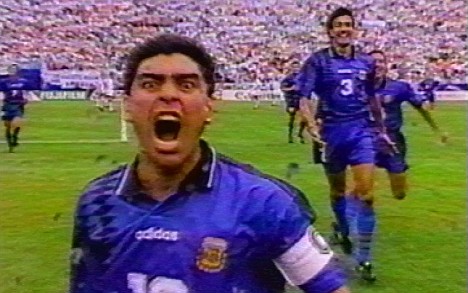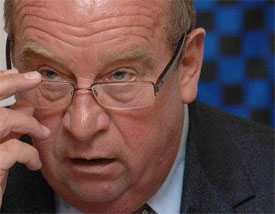By Andrew Warshaw
August 10 – World football’s leading medical expert has issued a stark warning against footballers being treated with anti-infammatory drugs, saying normal over-the-counter medications can have startling side-effects that could potentially wreck careers.
With league seasons about to start up across Europe, Michel D’Hooghe, chairman of FIFA’s Medical Committee, says the alarming use of non-steroid drugs, however legal and commonly prescribed, is now even more serious in football than the problem of doping.
In an exclusive interview with insideworldfootball, D’Hooghe says too many players are relying on non-steroidal anti-inflammatory drugs (NSAIDs) to get them through the pain barrier and out on to the pitch.
Although he will not name them, NSAIDs includes the likes of ibuprofen, naproxen and even aspirin.
“NSAID products are used for all kinds of treatments but can have serious side effects on the stomach and kidneys,” said D’Hooghe.
“They are fine once or twice but if you take them for too long and abuse them, they can cause ulcers and even affect the urinary tract.
“Right now I would say this is far more serious than doping, in football at least.
“It’s not always the clubs that prescribe them, it’s the players themselves who feel better when they take these drugs.
“They are not illegal but if you abuse them, they damage the body.”
D’Hooghe’s no-holds-barred comments are bound toprompt fierce debate across the game.
On the field, he is increasingly concerned about what he perceives as a reduction in automatic dismissals for deliberate elbowing.
“At the World Cup, I intervened when I noticed that elbowing was not sanctioned by a red card,” said the Belgian.
“The rules were not always followed by the officials.
“Elbows in the face are incredibly dangerous.
“You can lose an eye.”
Turning to FIFA’s anti-doping strategy, D’Hooghe says the fact that there was not a single positive test in South Africa proved football was clean when it comes to performance-enhancing drugs.
“We had 512 doping controls in South Africa and not a single positive which is pretty good going compared to other sports,” said D’Hooghe.
“We are collectively very proud of our anti-doping strategy.
 “Since the [Diego] Maradona case in 1994, we have not had single case in the World Cup.
“Since the [Diego] Maradona case in 1994, we have not had single case in the World Cup.
“Everyone playing football knows there is a good chance he or she could at some point be tested.
“Last year we had only nine steroid cases out of 35,000 controls.”
Although FIFA’s relationship with the World Anti-Doping Agency (WADA) has not always been smooth, D’Hooghe insists there is now common ground.
Except when it comes to out-of-competition testing.
“Right now there is only one differing view between us and that relates to exactly where footballers can be tested,” said D’Hooghe.
“Someone like a marathon runner can be tested in their house first thing in the morning.
“WADA believes everybody should be treated the same way regardless of whether it is an individual or team sport.
“We don’t share that view.
“In football, players are on the training field every day.
“If you get the training programmes of clubs, you can easily go to the stadium to test the players.
“There’s no need to go to private homes.
“It’s the only thing we disagree on.
WADA have even come round to accepting our policy of individual case management rather than an automatic two-year ban.”
Contact the writer of this story at zib.l1734850768labto1734850768ofdlr1734850768owedi1734850768sni@w1734850768ahsra1734850768w.wer1734850768dna1734850768

